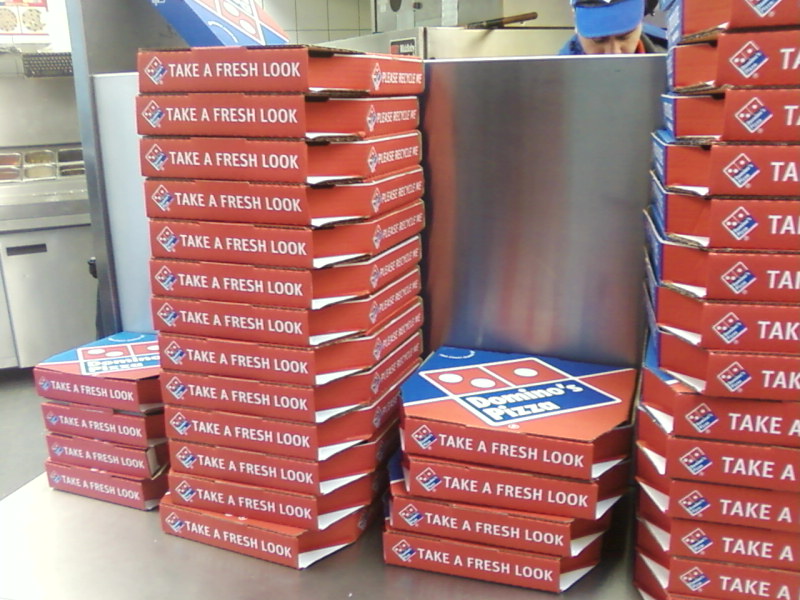In the early 2000s, Domino’s looked to be headed for the boneyard: customer satisfaction scores were hovering around 60%, they were facing rough competition in dine-in and delivery, and the company was in PR crisis mode after employees filmed themselves intentionally contaminating food products. Even their initial turnaround strategy seemed curious at the time—admitting their product had been terrible and promising to do better.
Through a redesigned menu and an all-or-nothing emphasis on technological innovation that streamlines ordering and delivery, Domino’s has, despite some prophesies of a “restaurant recession,” turned it around. With 13,000 stores in 80 international markets, shares have increased 46% this year, inching ever closer to this year’s projected $10 billion in global sales.
Such increases led Slate to ask, “When, and why, did the world start loving Domino’s?” Though the when and the why are interesting, no doubt, it is far more instructive to consider the how.
The Domino’s Begin to Fall
Domino’s has become, in its own words, "the recognized world leader in pizza delivery and digital ordering platforms.” Their immodesty aside, the description reveals the inextricable link between their recent successes and their advances in digital ordering. Already known as the fastest pizza delivery in the business (remember the 30 minutes or less promise?), Domino’s has asserted and expanded its biggest advantage, its convenience, and technology has been key.
“We’ve collapsed the pizza ordering experience completely. We are using technologies to give our consumers a new level of convenience they never had before,” Dennis Maloney, Domino’s Chief Digital Officer, said. The first step was creating Pizza Profile in 2013--though it seems commonplace today, having customers create profiles that saved their most common orders streamlined the process by allowing them to repeat previous orders and save their preferences and locations.
Nowadays, these customer profiles fluidly move between ordering channels, and, as of now, one can use their Pizza Profile to order through these means: Domino’s mobile app available on iOS and Android; by sending them a pizza emoji on social media platforms like Twitter and Facebook Messenger; via Dom, their virtual voice assistant; with a Samsung Smart TV, Amazon Echo, Ford Sync, Apple Watch, Android Wear, and Pebble Watch.
Customers can then follow their pizza through preparation and delivery with Pizza Tracker, which even provides them their delivery person’s name and location updates. Of course, they could always just go on the website or even—gasp!—order over the phone, but for a business catering to millennials, offering multiple tech-savvy avenues to pizza is just good business.

Domino’s President and CEO realizes this, of course: “We’ve made a very significant investment in technology over the course of the last six to eight years…All of those things have been helping us a lot and we’re growing very nicely with millennials.”
Reinventing the Pizza Wheel
Yet streamlining the ordering and delivery process will only get you so far—people must want what you want to bring them. With competitors figuring out new ways to make ordering easier, Domino’s has wisely diversified its advantages by also focusing on the quality of its product, which now inspires cult-like appreciation among twentysomethings, who are particularly into a relatively new menu offering, specialty chicken pieces.
They also gave their pizza a makeover, replacing their premade ingredients—which guaranteed speed but skimped on quality—while radically redesigning their pizza from the crust up. Customer satisfaction scores have risen considerably since the change, and now soar above 80%.
True, Papa John’s continues to set the standard when it comes to customer’s perception of quality, and Pizza Hut when it comes to size. But, through a combination of ordering technology and an improved product, Domino’s is courting millennials. It sounds cheesy, but they are essential to the industry’s future.


